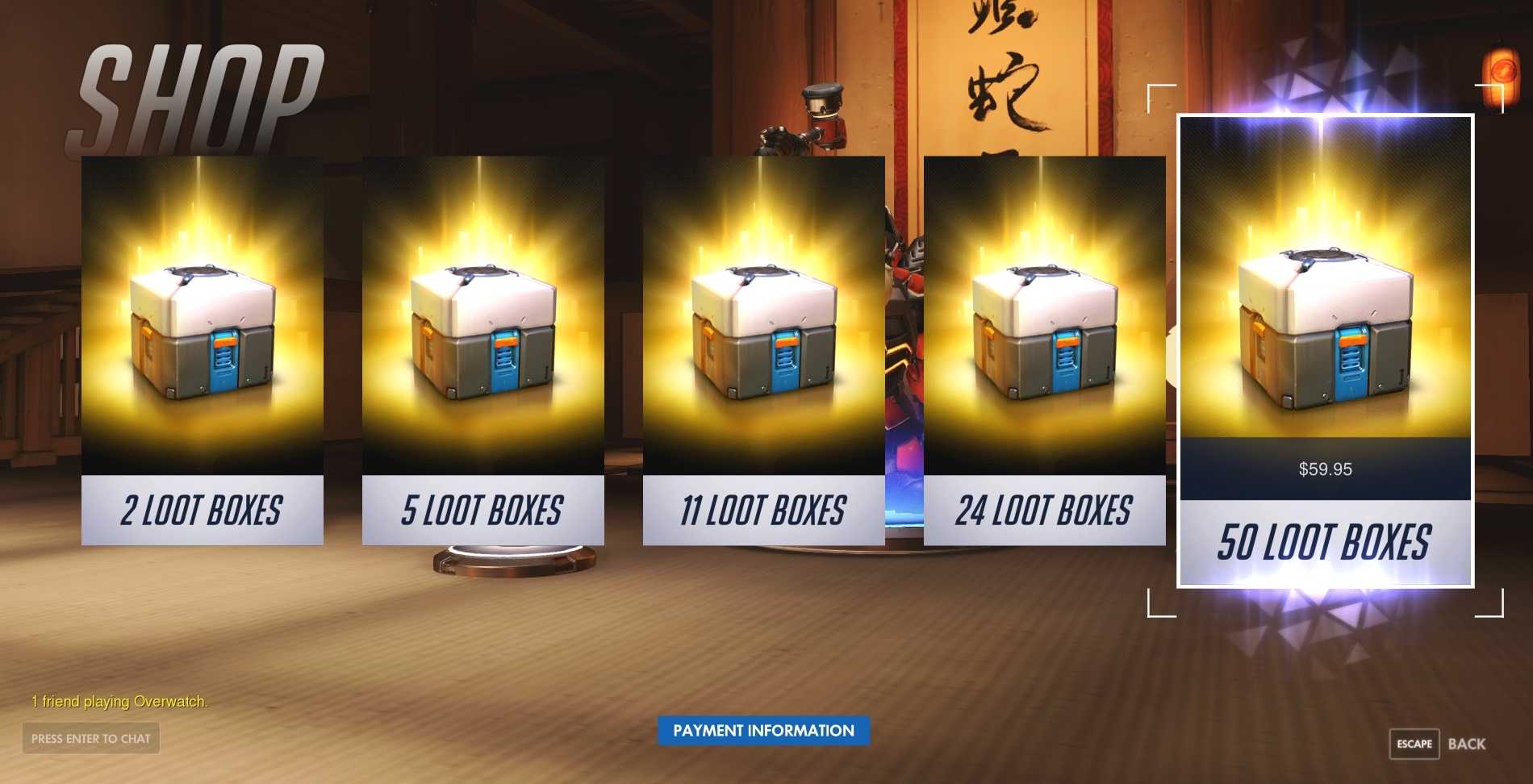One major goal in many video games is to progress far enough to unlock new items or upgrades to make the player stronger or to make the game easier to play.
These unlockables have long been tied to gameplay meaning they could only be obtained by utilizing the in-game systems.
Loot boxes are a virtual means of circumventing these systems and allow the player to randomly acquire unlockable content.
Loot boxes are different from regular items that can be acquired through normal gameplay. They are often used as a means to monetize games past their initial price point. This is because they can be bought with real-world money to give players more chances at unlocking the items they desire.
Loot boxes are not a new phenomenon. One of the first examples of loot boxes was in 2010 with the crate system in “Team Fortress 2.” The system allowed players the opportunity to spend money to open crates to unlock items that ranged from new weapons to wearable headgear.
Since then loot boxes have risen to greater prominence in the video game world, with many mainstream video game series implementing them.
There has been an ongoing debate about whether or not loot boxes should be allowed in video games, but they have become accepted as commonplace in recent years.
However, in 2017 the debate over loot boxes came to a head during the beta testing phase of Electronic Arts’ long-awaited “Star Wars Battlefront II,” where it was revealed that loot boxes would be tied to the game’s progression system. This meant that players would be required to open loot boxes to get items that would make them stronger than other players.
What angered consumers was that it was far easier to open loot boxes by spending money, creating a “pay-to-win” system that allowed players with more money to gain an advantage.
EA faced such immense public backlash over their implementation of loot boxes that they decided to disable the ability to buy loot boxes a day before the official release of the game.
The controversy renewed the debate on loot boxes, and it also highlighted some key differences in different company’s approaches to loot box systems.
Many consumers have less trouble accepting loot boxes that only give players purely cosmetic upgrades, such as in the popular shooter “Overwatch,” rather than game-changing ones, such as in “Star Wars Battlefront II.”
However, loot boxes as a whole are still a serious problem in video games.
This is due to the fact that loot boxes use variable-ratio reinforcement schedules to entice consumers into buying and opening them. Variable-ratio reinforcement is the psychological idea that certain behaviors are reinforced after a random number of responses.
Due to the inherently random nature of loot boxes, they can be likened to casino slot-machines.
This makes loot boxes highly lucrative and creates large amounts of revenue for games that implement them.
Loot boxes have reached such a high level of public scrutiny that politicians around the world have begun weighing in on the issue. One major concern is whether or not loot boxes should be considered virtual gambling.
In Nov. 2017, Belgium’s Justice Minister, Koen Geens, expressed interest in classifying loot boxes as gambling.
New Zealand has declared that loot boxes are not a form of gambling, while China requires that game companies post the odds of winning certain items in loot boxes.
U.S. Sen. Chris Lee of Hawaii declared that he would push to classify loot boxes as gambling in the wake of the “Star Wars Battlefront II” controversy, with an emphasis on protecting younger consumers, particularly children, from the practice.
On Jan. 25, state Sen. Kevin Ranker of Washington state proposed a new bill that aimed to determine whether loot boxes were considered gambling under state law, whether minors should have access to loot boxes and whether game companies should be required to disclose the odds of obtaining certain items in the loot boxes.
This came right before EA announced they would be bringing back paid loot boxes, presumably in response to poor sales of “Star Wars Battlefront II.”
Loot boxes are an unfortunate side effect of modern gaming that reflects an attitude of many game companies to prioritize profits over a positive gaming experience for consumers.
In a perfect world, loot boxes would not exist. However, it is unlikely they will ever be fully removed from games.
This is why it is so important for consumers to remain active in opposing the worst offenders of the practice so the more predatory version of loot boxes do not become commonplace.
Joshua Baldwin is a sophomore computer science major from Greensboro, North Carolina
Screenshot taken from Overwatch by Victoria Haynes

